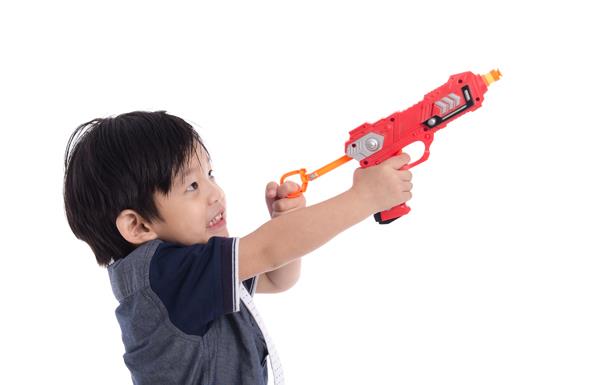Each child is born with a certain personality. Caring and understanding children's personality will help parents to have the best parenting way!
content
1 / Raising children properly when they belong to a negotiation group
2 / Group controller
3 / The child belongs to a rigid group, how do you teach your child?
4 / Parenting is a competitive group, what should be noted?
5 / Group of recklessness
6 / Raising children in sensitive groups, mothers must be gentle
A child's personality and temperament are partly influenced by genetics, and partly influenced by the surrounding environment. Children begin to form and develop character from about 6 months old. After that, this character will become more pronounced. This is the time when your baby discovers many interesting things about the world around them, they have more activities as well as more communication situations. All of these will contribute to forming a baby's personality. Regardless of personality, expression, parents should accept reality. The most important thing you can do for me now: Love a lot, give you a sense of security and the freedom to develop character.

Discover which personality group your baby belongs to below?
1 / Raising children properly when they belong to a negotiation group
If you belong to this group, the baby will be very funny and adorable. However, he won't like the rules and won't be forced to do something. At this time, the baby always has a way to distract the mother's attention with pranks. Nothing seems to be difficult for the baby.
To deal with these kids, mothers should clarify with the baby about the final limit, the maximum tolerance limit before getting angry with the baby's pranks. Even if necessary, the mother should also "rest in the middle of a round" to really calm down. Prepare to be steel because the baby will probably play continuously until the mother is bored and has to surrender. Small rewards and "winged words" are also extremely effective for kids in this group.
2 / Group controller
Having a one-way and strong thinking pattern, the baby is a control-loving type, maybe the "leader" in the group of friends, but it is easy to turn into a bully if not properly taught by his parents. Spend a lot of time with your baby, showing him how to think in different directions instead of thinking unilaterally. Everything can be "catastrophic" if the mother leaves the baby to decide on her own problem.

Don't try to change your child's nature, instead, you should find a parenting method that best suits your child's personality.
3 / The child belongs to a rigid group, how do you teach your child ?
Children in this group attach great importance to fair and fair affairs. Children will feel sad, upset if someone is treated inappropriately. However, this sometimes leads to some quite negative reactions. With children in this group, mothers should spend time helping them develop social communication skills. Teach your baby not to impose emotions when solving problems, as this can easily get him into trouble. The remarkable advantage of the baby is the ability to concentrate.
4 / Parenting is a competitive group, what should be noted?
The desire to win no matter what is the distinctive feature of the kids in this group. Your baby will be uncomfortable if he feels inferior to his friends. During development, children learn to win and to fail. However, for children in the competitive group, it is important not to lose face.
If your child belongs to this group, never compare him to anyone else, because that will only make his competitive spirit more intense. Instead, focus on your baby's actions and expressions, encouraging him to do many good deeds, and paying attention to his responsibility for each action. You should let your child do some housework on his own, he will have a sense of accomplishment and excitement when completed. At the same time, should encourage children to develop hobbies and participate in sports that are not inclined to antagonism.

Choosing a fitness sport for your baby With MarryBaby learn more about these types of exercise and choose a sport that's right for your baby.
5 / Group of recklessness
Just be a little distracted when taking your baby to the supermarket or crowded places, the baby can immediately disappear. If this happens often, she is probably "in possession" of a reckless freak. Despite being impulsive and not planning or thinking carefully about their actions, these risky kids hardly feel any anxiety at all. You probably won't find anything that can scare your baby.
Children in this group will love thrilling activities, active games such as camping, shooting paint guns ... High concentration every time every place is what mothers need to do to keep the baby safe. More importantly, when traveling with these kids to a public place, the mother should not challenge the baby anything. Pay attention to teach your child to be patient and remind him to think carefully before he plans to do anything.
6 / Raising children in sensitive groups, mothers must be gentle
Unlike the risk group, babies in the susceptible group often seem passive. Babies live more slowly and calmly than their age. Sometimes mothers will feel like babies are just living in their own world, not interested in the world around them. Sensitivity and intelligence are common in this group. Babies can avoid failure by themselves as well as eliminate sadness by themselves. Babies also have the thought that if anything can make them sad, they can "dissolve" themselves without doing anything.

Raising sensitive babies, mothers must be great tricks! Most children have a normal way of receiving and processing information, but also a part of children are sensitive to the things they come into contact with. Parents have an important role to play in helping children balance their thoughts and actions, avoiding ...
With sensitive babies, mothers will have difficulty communicating. Babies don't like to share their feelings; Even if your baby loses a favorite toy or has something unpleasant, he won't tell anyone. It takes a lot of time for mothers to step into the baby's world, helping them to open up. To do this, mothers need to be very patient and spend a lot of time talking and actively sharing with their babies their feelings.
Learning about children's characteristics will help mothers to have the most appropriate parenting strategies for children. However, the information is for reference only, mothers should not be rigidly stereotyped. Do not be upset because the mother feels the baby's personality is not suitable. Instead, focus on your baby's strengths and help him overcome his shortcomings. Be patient, mom!















